Introduction
Ever felt that unsettling shake when you pressed the gas pedal? It’s a jarring experience that can turn any drive into a stressful situation. Have you ever wondered: Why does my car shake when I accelerate? Many drivers face this issue, which can signal anything from minor adjustments to critical repairs. While a vibrating car can be unsettling, it’s essential to understand why it happens. Often, these vibrations stem from common problems like engine misfires, transmission trouble, or suspension issues.
When your car begins to shake during acceleration, it’s not just an annoyance—it could indicate an underlying issue that needs immediate attention. This guide will delve into the main reasons why your car might shake when you accelerate, helping you understand the causes and empowering you to make informed decisions about repairs.
Table of Contents
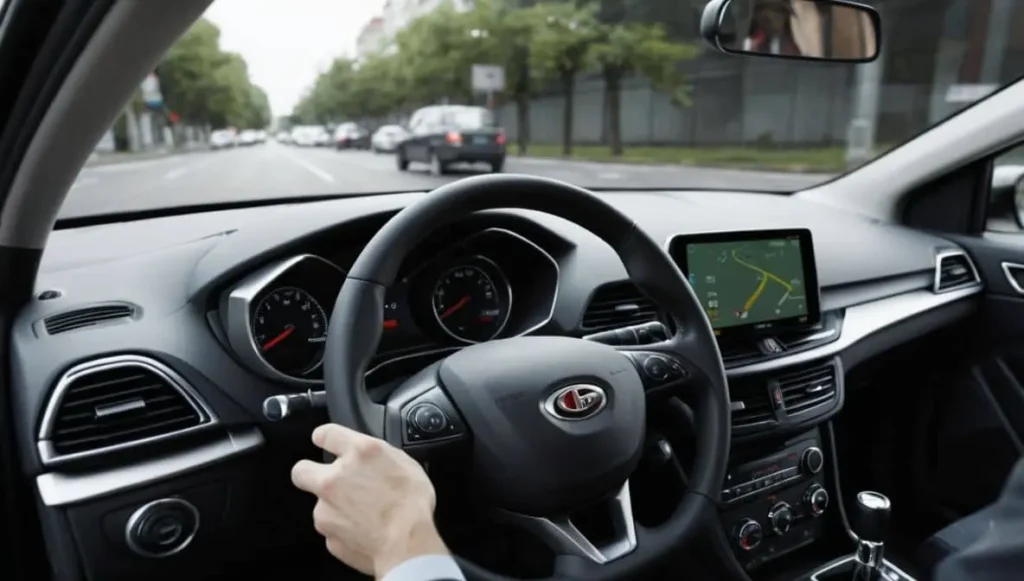
Common Causes: Why Does My Car Shake When I Accelerate?
Here, we’ll break down the most common causes to help you better understand “Why does my car shake when I accelerate?” and what you can do to address it. Shaking during acceleration can have several sources, and it’s vital to recognize what might be causing your car to vibrate. Here, we’ll break down the most common causes to help you better understand why your car shakes when you accelerate.
Engine Issues
One frequent answer to “Why does my car shake when I accelerate?” involves engine troubles. The engine is the heart of your vehicle, and if it’s not firing correctly, you’ll likely feel it. Misfires, which occur when the engine’s combustion process is disrupted, are a common cause. Faulty spark plugs or issues in the fuel system are often behind these misfires. When spark plugs wear out or fuel injectors become clogged, the engine cannot run smoothly, leading to noticeable shaking when accelerating. Replacing worn-out spark plugs or addressing fuel injector issues can significantly reduce these vibrations, helping to eliminate why your car shakes when you accelerate.
Transmission Trouble
Transmission issues are another reason why your car may shake when you accelerate. The transmission controls the transfer of power from the engine to the wheels, and if there’s a problem, it can lead to rough driving experiences. Low transmission fluid levels or worn-out gears may cause jerking or shaking as the car tries to shift. When transmission fluid runs low, components within the transmission experience increased friction, leading to vibrations.
Additionally, problems with gears, such as wear or damage, can make your car shake while accelerating. Regular maintenance, including checking transmission fluid levels, can help prevent these issues, reducing the chances of asking, “Why does my car shake when I accelerate?”
Suspension or Steering Problems
Suspension and steering components are also common culprits behind shaking during acceleration. Over time, parts in the suspension system, like bushings, shocks, and struts, wear down. These worn-out components can no longer absorb the forces of acceleration, leading to vibrations.
When steering components are loose or damaged, they contribute to a shaky ride. If the vibration intensifies while turning or at higher speeds, suspension or steering issues may be to blame. Keeping these components in good condition through routine inspections can help prevent shaking and answer the question, ‘Why does my car shake when I accelerate?
Tires and Alignment
Lastly, issues with your tires or alignment are frequent reasons why your car might shake when you accelerate. Tires naturally wear out over time, and if they become uneven or unbalanced, it can cause the entire car to shudder. Alignment problems, where the wheels are not positioned correctly, can also lead to vibrations. When your tires are misaligned or unbalanced, they don’t rotate smoothly, which you’ll likely feel as a shake when accelerating. Regular tire rotation and wheel alignment are essential for a smooth ride and to avoid these unsettling vibrations that make you wonder, “Why does my car shake when I accelerate?”
It’s also worth noting that seasonal changes and road conditions can impact tire health and alignment, leading to unexpected vibrations. For instance, driving over rough or uneven terrain frequently can cause misalignment, which might explain “Why does my car shake when I accelerate?” Regular checks, particularly after extreme weather changes, help keep alignment intact and prevent uneven tire wear, reducing vibrations during acceleration.
You can refer to the National Highway Traffic Safety Administration (NHTSA) for guidelines on tire safety and alignment: NHTSA Vehicle Safety.
Tires in poor condition, such as those with worn-out treads, can also reduce your vehicle’s traction on the road. Inadequate traction causes additional stress on the car’s suspension and steering, which may lead to more pronounced shaking when you accelerate. Investing in quality tires and staying proactive with alignment checks will contribute to a smoother, safer drive overall.
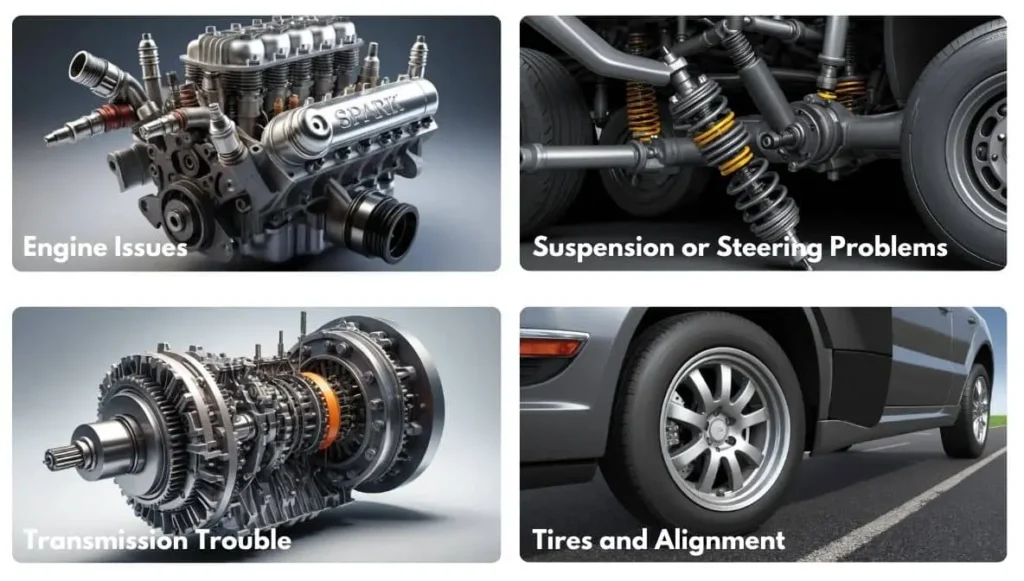
Signs and Symptoms of the Problem
Recognizing the different signs and symptoms associated with a shaking car is crucial, especially when wondering, “Why does my car shake when I accelerate?” Each symptom points to different potential issues, allowing drivers to pinpoint the problem more accurately.
Vibration Felt in the Steering Wheel
One aspect that drivers often notice is that shaking or vibration occurs at specific speeds, especially when accelerating. For instance, vibrations may intensify as the car reaches 40 mph or more. If you observe this, it could be due to issues with tire balance or alignment. Tires that are out of balance may perform well at lower speeds, but the faster you go, the more pronounced the vibrations become. By noting when the vibrations are strongest, drivers can determine whether the problem lies with the tires or other components, addressing why your car shakes when you accelerate at higher speeds.
Acceleration-Specific Vibrations
Sometimes, car vibrations only appear when pressing down on the gas pedal, which is directly related to acceleration. If the car shakes primarily during acceleration and not while coasting, this points more toward engine, transmission, or drivetrain issues. Misfiring spark plugs, fuel injector problems, or even a failing driveshaft are common causes of this type of shake. Being able to identify this specific symptom can save drivers time in diagnostics and repair, helping resolve why your car shakes when you accelerate.
By carefully analyzing these symptoms and noticing when they occur, you’ll better understand the issues causing your car to shake when accelerating, leading to quicker resolutions and a smoother drive.
Shaking Throughout the Vehicle
If the entire vehicle shakes rather than just the steering wheel, this could point to engine or transmission problems. When components within the engine aren’t functioning correctly—such as misfiring spark plugs or fuel injectors—the whole car may vibrate, especially during acceleration. Likewise, transmission issues like worn-out gears or low fluid can cause intense vibrations throughout the car. This full-body shaking is a clear indicator of internal problems that may require a professional inspection and is often why your car shakes when you accelerate.
If you experience a shaking sensation that increases in intensity the faster you accelerate, it could also indicate deeper mechanical issues. Often, this symptom points toward internal components, such as the driveshaft or CV joints, which play a key role in stabilizing movement during acceleration. Unlike vibrations that are contained to the steering wheel, these whole-vehicle shakes can be a clear answer to “Why does my car shake when I accelerate?”
Rattling or Clunking Sounds
Shaking that is accompanied by rattling or clunking sounds is another strong indicator that something isn’t right. These noises often stem from loose parts in the suspension or steering system. When parts like shocks, struts, or even brake components are worn or damaged, they may produce these sounds alongside the shaking. If the sound intensifies when accelerating, it’s a sign that components under the vehicle may be loose and in need of tightening or replacement. Recognizing these symptoms early can help answer why your car shakes when you accelerate and save you from extensive and costly repairs down the road, keeping you safe and stress-free while driving.
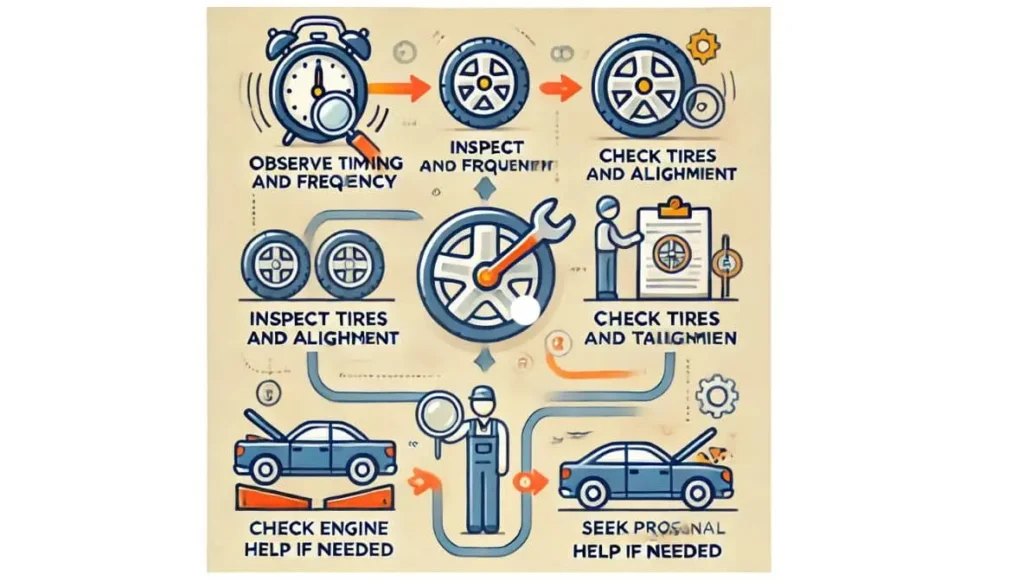
How to Diagnose Car Shaking
If you’ve been wondering, “Why does my car shake when I accelerate?” Taking a methodical, step-by-step approach is crucial for an accurate diagnosis of the problem. Here’s a step-by-step guide to help you identify the root cause of the shaking.
Step 1: Observe the Frequency and Timing
The first step is to observe the frequency and timing of the vibration. Does the car shake more at certain speeds, or only when accelerating? Noticing when the vibration occurs can point you toward specific issues. For example, if the vibration intensifies at higher speeds, it may be a problem with tire balance or alignment. However, if the shake happens only during acceleration, the issue could be related to the engine, transmission, or driveshaft.
Step 2: Inspect Tires and Alignment
Next, check the condition of your tires. Uneven wear, low tread, or unbalanced tires are common culprits for shaking and often answer the question, “Why does my car shake when I accelerate?” Check that each tire is properly inflated, as both underinflation and overinflation can result in unwanted shaking. Additionally, if your tires appear unevenly worn, this could indicate an alignment issue. Having your tires balanced and your wheels aligned can significantly reduce the risk of experiencing that unsettling shake when you press the gas pedal and wonder “Why does my car shake when I accelerate?”
Step 3: Check Engine and Transmission
If you suspect that the engine or transmission may be the reason you ask “Why does my car shake when I accelerate ?”, there are several key areas you can inspect. Start by listening for any unusual sounds, such as rattling or clunking, coming from under the hood. Additionally, open the hood and inspect the engine for any visible signs of wear, damage, or loose parts. Transmission fluid levels should also be checked, as low levels can cause excessive friction and lead to shaking. Remember, however, that engine and transmission issues often require a professional diagnosis for accuracy and safety, which is sometimes the only way to understand your question“Why does my car shake when I accelerate ?” fully.
Step 4: Seek Professional Help if Needed
If you’re still unsure or if the problem persists after checking tires, alignment, and fluid levels, it’s best to consult a mechanic. A professional can perform a thorough inspection, identify any hidden issues, and provide the necessary repairs. Sometimes, the reasons behind your question: “Why does my car shake when I accelerate?” are complex, requiring specialized tools or expertise. Don’t hesitate to reach out if the cause of the vibration isn’t clear, especially if you need a complete answer to “Why does my car shake when I accelerate?”
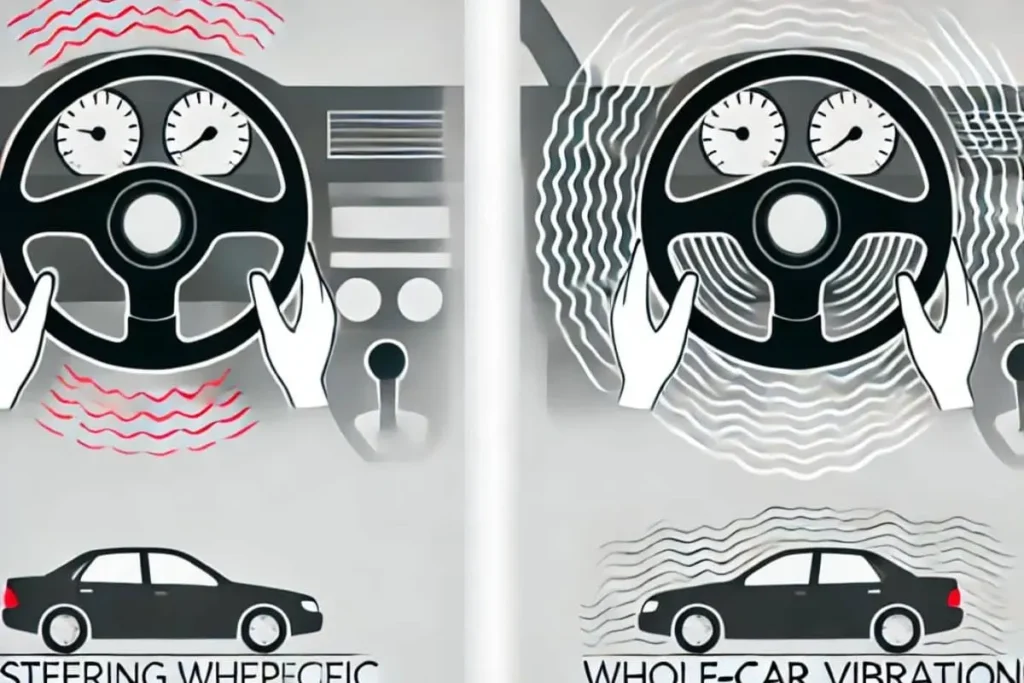
DIY Solutions and Knowing When to Consult a Mechanic
Knowing which tasks you can handle yourself versus when to seek professional help is key to addressing car shakes effectively and safely.
DIY Fixes
For simple problems, there are some DIY solutions you can try. If unbalanced tires are the issue, taking your car in for tire balancing is a straightforward and affordable fix. Additionally, checking tire pressure is something you can do at home with a pressure gauge. If the vibration is due to worn-out spark plugs, replacing them can be a simple fix if you’re comfortable with minor car maintenance. By addressing these manageable issues, you can often resolve “Why does my car shake when I accelerate?” without needing a mechanic.
When to Visit a Mechanic
However, if the shaking is due to more complex problems, like transmission trouble or issues with the driveshaft, it’s best to see a mechanic. Transmission repairs, in particular, require specific knowledge and tools that are not accessible to the average car owner. Similarly, problems related to the suspension or steering system are best handled by professionals to ensure your safety on the road. Knowing when to see a mechanic helps you avoid costly mistakes and resolve your question “Why does my car shake when I accelerate?” more effectively.
Preventive Maintenance to Avoid Shaking
Prevention is always better than cure. By following regular maintenance tips, you can minimize the risk of car shaking and prolong the health of your vehicle.
In addition to the regular maintenance already mentioned, paying attention to road feedback while you drive can alert you to early signs of problems. If you detect even minor vibrations or uneven movement, it’s worth checking basic components like tires and suspension before they lead to more serious issues. In the long run, being mindful of these subtle signs can improve your car’s longevity and ensure a smoother, shake-free experience when you accelerate. Preventive maintenance isn’t just about immediate fixes; it’s about creating long-term reliability and safety for your vehicle and eliminating future concerns about “Why does my car shake when I accelerate?”
Regular Tire Rotations and Alignments
One of the simplest ways to prevent vibrations is by scheduling regular tire rotations and alignments. Tires wear out differently depending on their position on the car, so rotating them every 5,000 to 7,500 miles helps them wear evenly. Proper alignment also ensures that your tires remain balanced, which reduces the likelihood of vibrations. The U.S. Department of Transportation offers extensive resources on vehicle safety that are worth consulting: DOT Vehicle Safety.
These maintenance steps are essential to avoid future instances of asking yourself, “Why does my car shake when I accelerate?”
Engine Tune-Ups and Timely Part Replacements
Another preventive measure is to keep your engine in peak condition by scheduling tune-ups. Replacing worn spark plugs, changing air filters, and performing regular oil changes can keep the engine running smoothly. Each of these steps helps prevent misfires and keeps your engine from vibrating excessively, so you don’t end up wondering “Why does my car shake when I accelerate ?“
Routine Inspections for Suspension and Steering Components
Regular inspections of suspension and steering components are also crucial. Shocks, struts, and bushings tend to wear out over time, and routine checks can ensure they are functioning correctly. By keeping these parts in good condition, you’ll avoid the shaking and vibrations that come from poor suspension health.
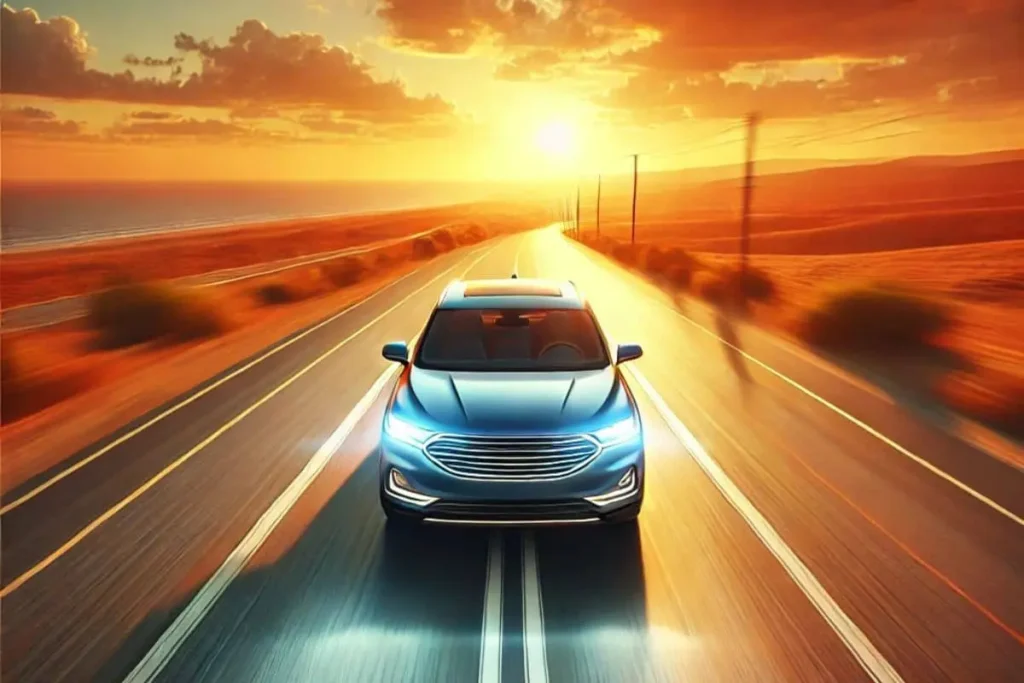
Conclusion
To sum up, grasping the reasons behind “Why does my car shake when I accelerate?” involves pinpointing the root cause, whether it’s engine issues, transmission trouble, tire imbalance, or worn suspension parts. By following the diagnostic steps and considering preventive maintenance, you can drive with greater peace of mind and a smoother experience.
Don’t ignore car vibrations; addressing these issues early can prevent larger, more costly repairs. Whether it’s a DIY fix for tire pressure or a trip to the mechanic for transmission diagnostics, keeping your car in top shape is the key to avoiding unexpected shakes and ensuring safe, comfortable rides. Addressing the causes behind “Why does my car shake when I accelerate?”, You’ll experience a more comfortable ride and a greater sense of reassurance.
Want to keep your car running smoothly? Check out our car maintenance tips for practical advice on keeping your vehicle in top shape. Stay proactive, and never worry “Why does my car shake when I accelerate?” again!

